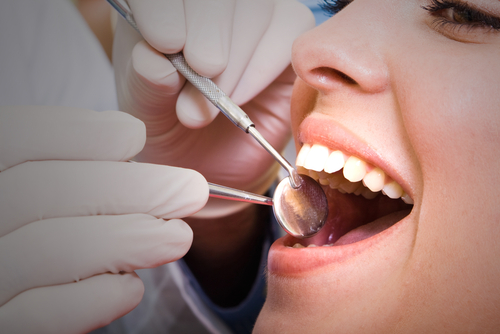When your dentist is poking around inside your mouth, he’s not just
looking for cavities. He’s looking for cancer, too. Oral and neck cancers
cause more than ten0thousand deaths every year and early detection is key
to beating the cancer.
Dr. Jason Hunt is a Head and Neck Surgeon at Univeristy of Utah Health
Care and shares some thoughts on the cancer and a free screening
opportunity.
The American Cancer Society estimates that there will be over 52,000 new
cases of cancer of the oral cavity and throat and an estimated 11,500
deaths from these cancers in 2012.
Most oral cancers arise on the lips, tongue or the floor of the mouth. They
also may occur inside your cheeks, on your gums or on the roof of your
mouth. Other head and neck cancers arise from the voice box or throat.
Important signs and symptoms to watch for are:
· Unexplained persistent pain in your mouth or throat
· Difficulty speaking, chewing, swallowing or moving your tongue
· A sore in your mouth that doesn’t heal or that increases in size, or a
lump in your neck
The main risk factor, as for many cancers, is Tobacco use (including
smokeless tobacco). Eighty-five percent of head and neck cancers are
linked to tobacco use. Alcohol use is another risk factor, with people who
use both tobacco and alcohol at greater risk for developing these cancers
than people who use either tobacco or alcohol alone.
Recently we have seen an increase of head and neck cancer incidence in
younger adults that do not use tobacco. This increase is due to infection
with the human-papillomavirus (HPV), which is a cancer-causing virus.
As part of your routine dental exam, your dentist will conduct an oral
cancer-screening exam. If your dentist or other health care provider
suspect you may have oral, head or neck cancer, they may refer you to
someone like me who specializes in the treatment of these cancers.
The good news is that if we catch them early we can treat these cancers
very effectively and have good outcomes. Cancers of the mouth, head and
neck are treated in the same way many other cancers are treated;
frequently with surgery to remove the cancerous growth followed by
radiation therapy and/or chemotherapy (drug treatments) to destroy any
remaining cancer cells. In some individuals the location and extent of the
surgery may require reconstructive surgery, and we have specialized
training in facial reconstructive surgery to do this. We individualize care for
each patient to determine the best treatment plan.
April 22-28 is Oral, Head and Neck Cancer Awareness week, so at
Huntsman Cancer Hospital at the University of Utah, we will be offering free
oral cancer screenings on April 21st.
To learn more about the screenings, or to schedule a screening go to
www.huntsmancancer.org or
call 888-424-2100















Add comment